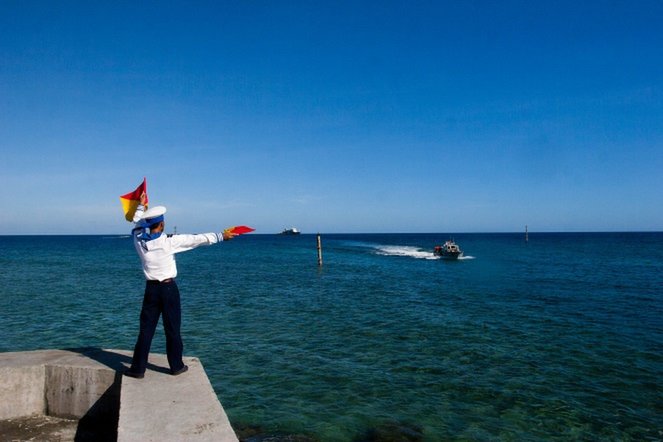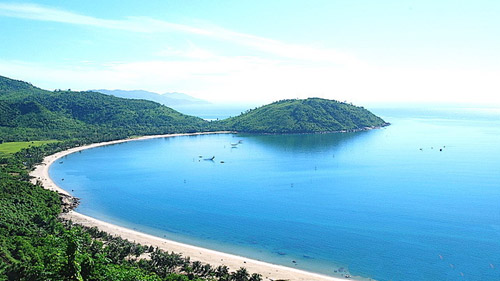The Law on natural resources and environment of sea and islands of Vietnam came into force from July 01, 2016. This is the time that marks the first time the law has been legislated on a new management method at sea, which is integrated management and is expected to bring efficiency in resource use and environmental management of sea and islands.

The Law on natural resources and environment of sea and islands of Vietnam consists of 10 Chapters and 81 Articles, regulates general management of natural resources and environment; rights, obligations and responsibilities of agencies, organizations and individuals in general management and protection of natural resources and environment in Vietnam.
The Law on Natural Resources and Environment of Sea and Islands stipulates many new and important contents and principles which are prescribed for the first time in Vietnamese law, such as the principle that general management of natural resources of sea and islands must be based on ecosystem approach ensuring natural resources of sea and islands are exploited and used in agreement with function of each sea area and within load capacity of environment, ocean ecosystem and islands; ensuring rights of residents to get access to the sea; coastal area protection corridors; zoning for exploitation and use of natural resources in littoral zones; management of natural resources in islands; zoning risk of sea and island environment pollution, level of risk of sea and island environment pollution; issuance of permit for sea dumping. The law also stipulates prohibited acts and specifies responsibilities for investigation and assessment of the sea and island environment.
The fundamental new point of the Law is to focus on regulating mechanisms and policies for inter-sectoral and inter-regional coordination and cooperation, including strategies, planning, programs, information systems, data without regulations on management, exploitation and use of specific marine resources. The integrated management method will help overcome conflicts and contradictions in management by industry and field; rational and efficient use of natural resources, protection of the environment and ecosystems of sea and islands; unify activities of management of resources and environment of sea and islands from central to local levels, ensuring sustainable development of sea and islands.
Therefore, the Law on natural resources and environment of sea and islands does not overlap with specialized laws. Implementing the integrated management method, sea and island resources will be managed uniformly according to the strategy, master plan and plan; ensuring that marine and island resources are exploited and used in accordance with the functions of each sea area and within the load-bearing limits of the environment and ecosystems of the sea and islands; ensuring close coordination between branches and levels; ensuring rights of residents to get access to the sea, creating favorable conditions for relevant communities, organizations and individuals to participate actively and effectively in the management implementation process.
The Ministry of Natural Resources and Environment, ministries, ministerial-level agencies, Governmental agencies, People’s committees of central-affiliated coastal cities and provinces, within the scope of duties and powers, shall be responsible for carrying out monitoring and assessment of environmental pollution in sea and islands, current conditions of water, sediments, ecosystems and biodiversity of sea and island areas; conducting investigation, statistical work, classification and assessment of waste sources from mainland, activities on sea and islands according to regulations on environmental protection.
The Law on natural resources and environment of sea and islands was established to institutionalize the Party and State's guidelines and policies, step by step perfecting laws to manage marine and island resources to ensure that marine and island resources are exploited and used effectively, and maintaining the function and structure of the ecosystem in order to develop sustainably, protect Vietnam's sovereignty, sovereign rights and jurisdiction at sea. Concurrently, it is an important legal corridor to create a breakthrough in resource management and environmental protection of sea and islands, contributing to soon turn Vietnam into a strong country in the sea, get rich from the sea, and successfully implement the Vietnam Maritime Strategy to 2020.
Source: My Thanh Commune People's Committee website
 Article table of contents
Article table of contents






.Medium.png)
.Medium.png)
.Medium.png)
.Medium.png)
